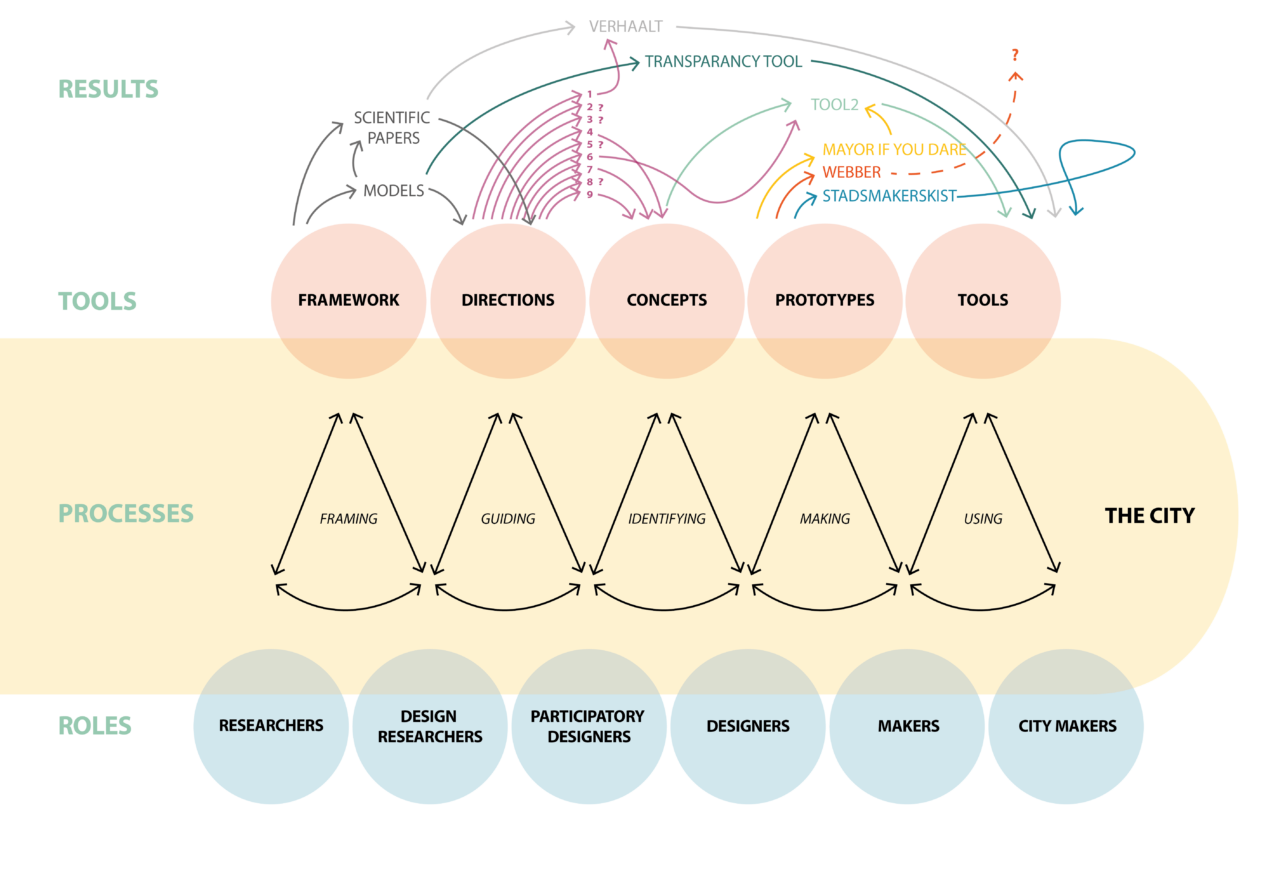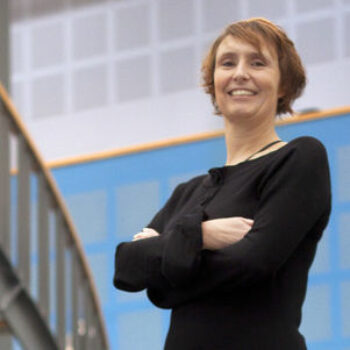Participatory City Making: Results
The Participatory City Making project (2016-2019) created frameworks, directions, prototypes and tools for stakeholders to actively engage in exploring collaborative potentials, defining their roles in city making processes. This article shares the overall process and the main insights and lessons learned.
The clean process
The final tools can be found here. However, there were many more type of tools in between that we believe are valuable for city making, such the tool framework, tool directions, tool concepts and tool prototypes. How and with whom these different levels of tools were produced is shown in the figure below. The figure shows the very general process that was followed during the project, characterised by a Research through Design Process. This means that the linearity that is portrayed in reality was not as clean-cut as represented. It was an iterative process, with many different people involved that took different roles at different moments in time of the project. Take a look at the events page to see who were all included at different moments in time.

The actual process
To portray the actual process, we have made an extra figure that shows the more organic, iterative and designerly flow of our process. Here the different subprocesses that lead to the ‘tool tools’ is visualised above the clean-cut figure. Also, it is not said that the process is finished, the tools can be used, further developed still and by continuing along these cycles (represented by the triangles in the figures) the process of participatory city making in Rotterdam can continue.

Main insights and lessons learned
To summarize the insights that we gained throughout the project Participatory City Making, we created a card set. One of the main insights is that citizens and civil servants should not be seen as two opposing stakeholders, instead both parties can innovative and actively contribute to transitions. In other words, within the government as well as grassroot initiatives there are forces that have the potential to change the regime. The so-called interaction space between those two is the space where the changes will happen. You can view the cards below that summarize both research insights and design examples. We still have cardsets available, so if you’re interested, send us an e-mail!
